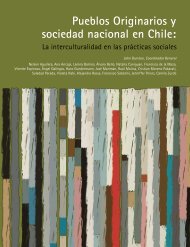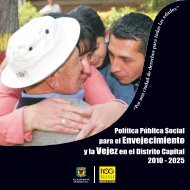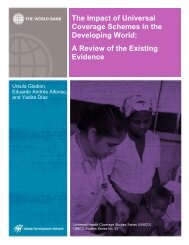11ZAQGM
11ZAQGM
11ZAQGM
Create successful ePaper yourself
Turn your PDF publications into a flip-book with our unique Google optimized e-Paper software.
cultural awareness-raising activities, meetings and workshops held at<br />
the CHIEHA Information Centre; and support in resource mobilization<br />
and securing funds for the implementation of village conservation<br />
activities. Outreach to local communities is also done through<br />
partnership development; making connections between community<br />
and villages needs and the capacities of network partners (including<br />
CBOs, line ministries, and others).<br />
Sustainable natural resource management<br />
One of CHIEHA’s primary objectives is the sustainable management<br />
and use of natural resources in the Sangwe area and the Great<br />
Limpopo Transfrontier Park Conservation Area (GLTPCA). The GLTPCA<br />
is a young network, still in its development stage, but which aims to<br />
link and integrate the efforts of local, community-based organizations<br />
active in sustainable development. Groups involved in the network are<br />
diverse, and include traditional leadership organizations, catchment<br />
management programs, and wildlife protection committees. While<br />
the majority of current members are from Zimbabwe, the long-term<br />
objective of the network is to attract members across the borders<br />
of Mozambique and South Africa. Many community members are<br />
related culturally, share a common language, and draw from the same<br />
common pool resources – water, wildlife and forests. CHIEHA has<br />
been a pivotal advocate in the development and coordination of the<br />
network, and has used it effectively as a knowledge sharing platform<br />
in which communities can share experiences and lessons learned,<br />
market their products, and foment partnerships.<br />
Tourism based on local natural and cultural heritage<br />
CHIEHA also promotes eco- and ethno-tourism as a means of<br />
conserving local biodiversity and preserving cultural heritage.<br />
The ecotourism initiatives of CHIEHA are based on the natural and<br />
cultural resources of the Sangwe area. The region has a great deal to<br />
recommend it for tourism, including Zivambava Island, the Ndongo<br />
Ruins, the Chibememe mainland forest, and an abundance of local<br />
technology, art, song and dance. While current levels of tourism<br />
in the southeast region of Zimbabwe are quite low, CHIEHA’s ecotourism<br />
programs have the potential to become the engine of<br />
growth. CHIEHA is located in close proximity to two key wildlife<br />
sanctuaries, which are critical corridors of the GLTPCA – the 500,000<br />
km Gonarezhou National Park (the second largest national park<br />
in Zimbabwe) and the 350,000 km Save Valley Conservancy (the<br />
largest privately owned wildlife sanctuary in Africa). These wildlife<br />
havens have a great deal of potential to support CHIEHA tourism<br />
initiatives and to attract low-impact tourism. So too, the Chibememe<br />
community and the communities of the Sangwe communal lands<br />
have a diverse and rich cultural heritage, which can be the basis of<br />
ethno-tourism projects.<br />
Other crosscutting objectives of CHIEHA include: the restoration<br />
and revival of the cultures and traditions of the Sangwe and<br />
surrounding communities for future generations; the fostering of<br />
a spirit of participation in the preservation and conservation of the<br />
region’s natural and cultural heritage; raising the standard of living<br />
of members through livelihoods diversification; empowering local<br />
participation and engagement in policy-making processes; and the<br />
effective integration of natural resource conservation, traditional<br />
knowledge and land management systems, and sustainable<br />
development planning.<br />
Organizational structure<br />
CHIEHA is governed by a number of administrative committees.<br />
As a registered community conservation trust, the organization is<br />
overseen by a Board of Trustees comprised of traditional leaders,<br />
local community members, local authorities, and representatives<br />
of women’s groups, line ministries, local NGOs and local schools.<br />
The Board of Trustees is nominated by the local population and<br />
retain responsibility for strategic guidance, policy development and<br />
assistance in resource mobilization and fundraising. An Executive<br />
Committee comprised of elected members of the local community<br />
is responsible for the day-to-day management of CHIEHA, as well<br />
as oversight of activities and programs in concert with CHIEHA’s<br />
Coordinator. The major projects of CHIEHA are also overseen by<br />
sub-committees, which work cooperatively with the Coordinator<br />
and report to the Executive Committee. Example of sub-committees<br />
include: Earth Healing and Catchment Management, Environmental<br />
and Cultural Information and Energy Project, Nutritional Garden,<br />
Sustainable Agriculture, Zivemava Island Forest Conservation, and<br />
Income Generation. Committees emerge and disassemble organically,<br />
based on project cycles and on what projects are operational at<br />
any given time. Coordination of the committees is often done on a<br />
voluntary or part-time basis. Committees are open to any member<br />
of the community. Committee members retain responsibility for<br />
organizing and coordinating all the activities associated with the<br />
respective projects. All seven Executive Committee members are<br />
from the Chibememe community, comprised of four women and<br />
three men. Eight of the twelve members of the CHIEHA Conservation<br />
and Development Trust board of trustees are from the community.<br />
“Climate change is a reality for all of us. Local communities are the custodians of forest<br />
resources which are the world’s major carbon sinks – it is therefore the responsibility of<br />
all stakeholders to respect their voices in climate change negotiations.”<br />
Gladman Chibememe, CHIEHA<br />
35






